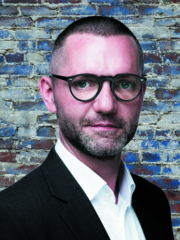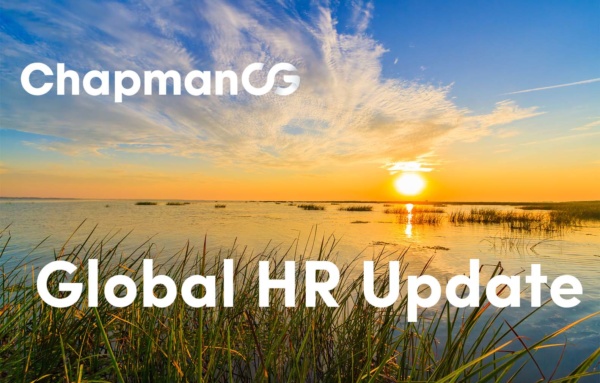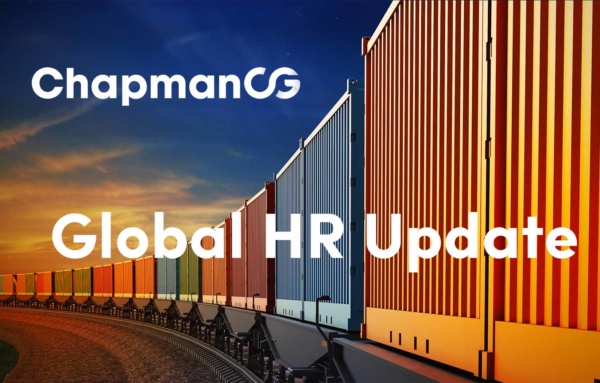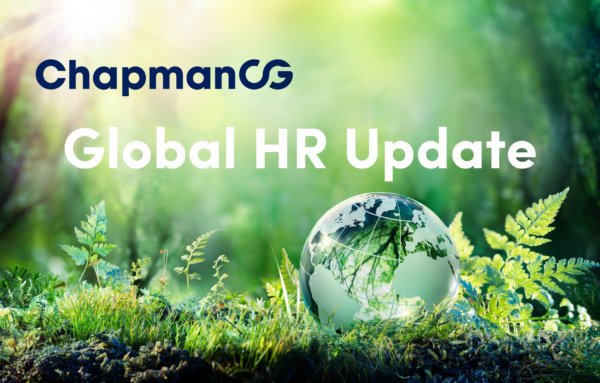Managing Change in Korea: Do You Have a Fat Middle?
In mid-February 2016, ChapmanCG held a series of meetings in Seoul for our community of HR and Talent Leaders in Korea. We were kindly hosted by Standard Chartered Bank and Energizer, and attendees at the meeting came from a wide array of industries. Among the groups were senior HR leaders from companies such as Amazon, BNY Mellon, British American Tobacco, Delphi, Doosan, eBay, Ecolab, Estee Lauder, GlaxoSmithKline, Johnson & Johnson, Philips, RB and Schneider Electric.
The common theme of both meetings was the issue of managing big company changes in the context of Korea. For many HR leaders the subject of change in Korea can immediately cause stress, because senior and mid-ranking employees have a reputation for being very resistant. To compound matters, they are often backed by strong unions, which can make even incremental changes very difficult to accept. As with any change management programme, anywhere in the world, there is always a problem when change happens too frequently, and Employee Engagement can suffer the ‘death from a thousand cuts’ syndrome. In Korea particularly, it is of paramount importance to make changes swiftly, sensitively, and also comprehensively, in order to avoid this scenario.

If You’re Going to Make one big Change, Why not Make Ten?
In one case study, a company had recently gone through a separation into two different entities. Employee Engagement had been plummeting before the change, with rumours circulating about what was going to happen. To some extent, the process of repeated and consistent communication, with as much one-on-one face time as possible, helped to assuage this situation, but attrition was still at 30% – a number which speaks for itself.
The reason why this was presented as a case study of success rather than failure is because of what happened directly after the separation. The company was able to part from the previous CEO, who had been running the organisation with an autocratic style. This in turn led to many changes that would never have been accepted before, including greater communication, increased usage of cross-functional teams, and a more customer-focused culture and attitude to business. The company closed down some offices and employees who had been based in these converted to remote working, and it relocated the Korea head office to one with a floor plan that allowed for more transparency. None of these changes were ‘needed’, but all of them were desirable, and had been discussed for many years before the company separation provided the impetus to carry them out. Through all of these efforts, the leadership and the HR team together were able to instil a new and unified company mission, which meant that the post-separation attrition rate was much lower than the original prediction of 20% – it was 0%.
30,000 Years of Experience Walking out the Door
In another case study, one company realised that they had a ‘fat middle’, meaning a fat middle management level. The organisation had a sound leadership team, and a strong pipeline of future-thinking talent rising up the ranks. But there were around 1,000 middle-management employees, each with about 30 years’ experience, who were not going to be selected as future leaders, and who represented an obstruction to the promotion of new and upcoming talent. The company was able to perform a successful special retirement programme for these 1,000 employees, representing a combined working experience of 30,000 years.

There were many factors behind the success of this programme. One of the keys was in finding ‘ambassador’ employees who accepted the changes, and helped to influence other employees around them. The key message was that this was an ‘honourable exit’ which allowed for the younger generation to have a greater chance for the future. This message of respect was also followed through by very generous retirement packages, as well as a lot of support for external redeployment for those who were keen to continue working elsewhere. And in as much as the company ‘took care’ of the employees leaving, they didn’t forget about the importance of taking even more care of the employees staying. The organisation launched a wide-ranging ‘Re-Recruiting’ process. The HR team knew that it was more than just re-engagement; they needed to actively ‘recruit’ their existing employees into the new vision that was being created.
The Caveat: Change is Inevitable and Ongoing
With both of these examples, the companies were able to ‘think big’, and roll out a host of changes in one go, thus diminishing the negative impact of continual change. However, the problem is that the modern world is indeed continually changing, at speeds much faster than ever before. So to some extent, the conclusion that was drawn in both meetings was that HR needs to encourage people to accept this ‘new normal’. Importantly, as HR Leaders, there needs to be a personal acceptance of this, if they stand a chance of convincing others. In another case study, a Global CHRO was able to do this by explaining to the family leaders of a ‘Chaebol’ company that they shouldn’t be the ones to let down six previous generations of business leaders by not being able to keep up with the pace of change. And in a final case study, a heavily unionised organisation was able to re-engage closely with the employees directly about the reasons for change — an effort that limited the impact of the union and brought them back to the negotiating table. So for all these global changes, there can be a Korea-specific solution for those HR leaders who can ‘lean in’ to modern modes of working and thinking.
We thank all the hosts and attendees of these enjoyable meetings, and look forward to the next gathering.
Here’s What People are Saying:
“This is the best of all HR senior meetings in Korea, in terms of sharing good practices in companies in Korea with very practically useful content, and it is run in a time-efficient manner and interacting with senior HR leaders including foreigners in English. In particular, this time I really enjoyed great presentations made by native speakers from multinational companies which have large presences in Korea.” – Alex Jeong, BNY Mellon
“I found the simple / short format of knowledge-sharing effective, whilst giving me the opportunity to network with my peers.” – David Kim, British American Tobacco
“It is always a pleasure to spend quality time with like-minded HR professionals all struggling with essentially the same leadership, talent, and change agendas. It’s a terrific opportunity to bench-test your own thinking with the alternative ideas that these events foster.” – Reginald Bull, Doosan
“Everybody seems to be very engaged in the agenda and discussion, I felt the power of collective intelligence. And it emphasised that we’re in the same boat — change management, and balancing between millennials and other generations. It was really fruitful, and I’m looking forward to having this opportunity again.” Julie Kwon, eBay
“The session was really helpful in providing deep insights on Roles of HR in organizational change with new social trends.” – Diana Cho, Ecolab
“It was a very valuable meeting to share experiences, knowledge and thoughts about the topic!” – Mi-Young Kim, Energizer
“It was a very good opportunity to learn how other companies are doing change management. I could sense that we all have similar issues and similar approaches to solve problems in one way or another.” – Christine Park, Maersk
“These days, organ
isational changes are common matters at every company, caused by M&A, restructuring and other business decisions. The case studies showed a special essence — focusing on bottom-up opinions. This might be an important message within Korean culture having a traditionally top-down climate. Innovation is not a big theme if we think differently and accept different views.” – Christie Noh, Toppan Printing
Key Contributors:
 Andrea Merrigan
Andrea Merrigan Orelia Chan
Orelia Chan Stanislav Medvedev
Stanislav Medvedev Fleur Daniell
Fleur Daniell Finian Toh
Finian Toh Tim Rayner
Tim Rayner Nicola Hasling
Nicola Hasling Stefanie Cross-Wilson
Stefanie Cross-Wilson

 Devijaya Nair
Devijaya Nair Steve Brown
Steve Brown Dee Karsan
Dee Karsan


